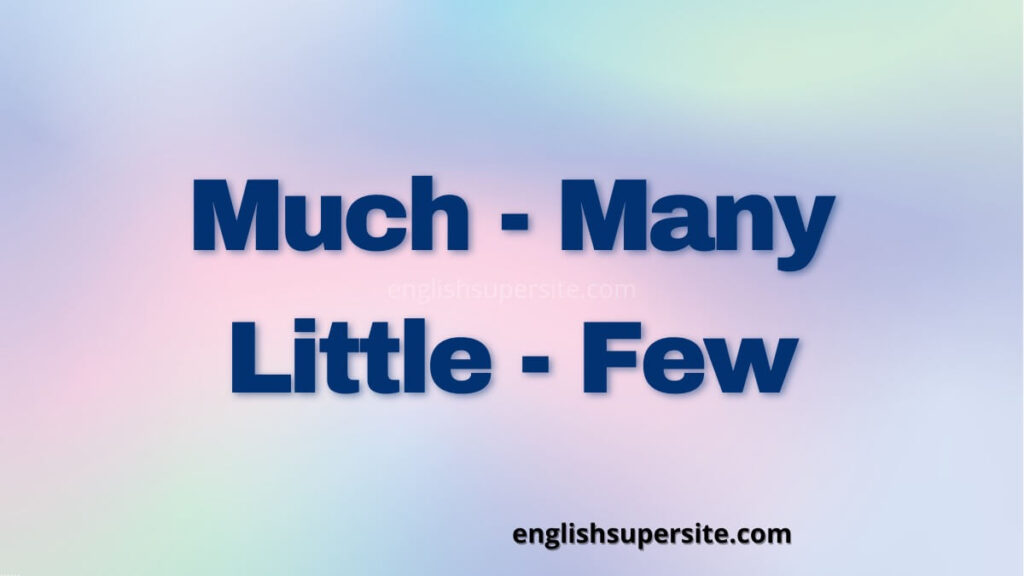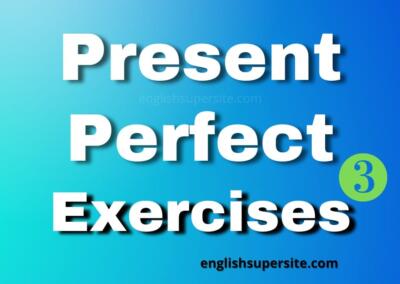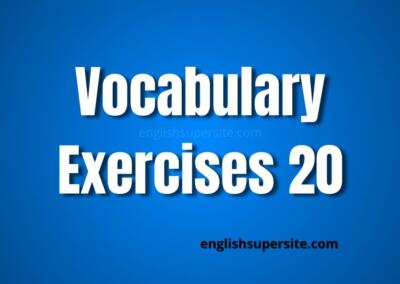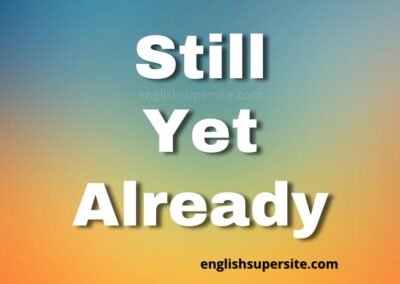
Much, many, little and few
In English, we use much, many, little, and few very often. They are quantifiers and are used to give information about quantity, the number of something.
Both much and many suggest and imply a large quantity of something, on the other hand, little and few suggest or imply a small amount.
Much, little, and a little
Meaning
Much: a great amount or quantity
Little: not much; small in size, amount, or degree.
A little: some, a small number
Usage
We use much and little to refer to a large amount of something that is uncountable nouns, such as money, water, sand, or time.
Examples:
Much:
- much money
- much luck
- much time
- much energy
- How much does it cost?
- We spent too much money!
- How much time is left?
- We need to buy much more flour to make that cake.
Little and a little:
- little money
- little luck
- little time
- little energy
- We have little time to finish this homework.
- There is little sand on the beach.
- There is little money left for our project.
- Let’s eat, we still have a little time before the plane leaves.
- You should enjoy life a little and relax!
NOTE: little = not much | a little = some, a small number
A. Were you able to talk with him?
B. No, he spoke very little English, and we could barely communicate.
A. Were you able to talk with him?
B. Yes, a little! Yes, we were able to communicate.
Many, few, and a few
Meaning
Many: a large number of (people or things)
Few: the opposite of many; a small number of (people or things)
A few: some, a small number
Usage
We use many and few to refer to a large amount of something that is a countable plural noun, such as friends, people, cars, apples, or books.
Examples
Many:
- many friends
- many people
- many things
- many cars
- many children
- There are many people at the party.
- We have many pears in the fridge.
- There are many cars in the parking lot.
- There are many books in the library.
Few and a few:
- few friends
- few people
- few things
- few cars
- few children
- Mike doesn’t like his new school, he has few friends there.
- John has very few friends.
- I don’t have much, I just have a few things.
NOTE: few = not many | a few = some, a small number
A. Mary is happy at the university, she has a few friends there!
B. Yes, she has some friends there, enough to have a good time.
A. Mary is sad at the university, she has few friends there!
B. Yes, she doesn’t have many friends, she is so lonely!
A lot of – Lots of – Plenty of
Meaning
A lot of: a large number or amount; a great deal; many or much
Lots of: a large number or amount; a great deal; many or much
Plenty of: a large or sufficient amount or quantity; more than enough.
Usage
We use a lot of, lots of, and plenty of with both uncountable and countable plural nouns.
Examples:
- a lot of money
- lots of money
- plenty of money
- a lot of friends
- lots of friends
- plenty of friends
- a lot of luck
- lots of luck
- plenty of luck
- a lot of people
- lots of people
- plenty of people
- a lot of time
- lots of time
- plenty of time
- a lot of things
- lots of things
- plenty of things
Study Also:
Abbreviations Cohesion and Coherence Collocations Comparative Conditionals Frequent Errors Future Continuous Future Perfect Future Perfect Continuous Future Simple Homonyms Interjections Journaling Learn English Linking Words Logical Flow Past Continuous Past Perfect Past Perfect Continuous Past Simple Plural Present Continuous Present Perfect Present Perfect Continuous Present Simple Pronunciation Question Tags Quiz Quotes Simple Future Simple Past Simple Present Spelling Superlative Transition Words
Share with your friends!






